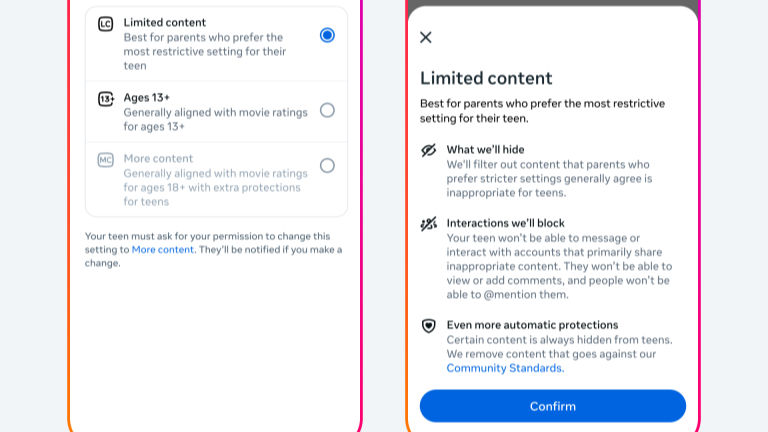Internal Meta Research Shows More 'Eating Disorder Adjacent' Content for Vulnerable Instagram Teens
- tech360.tv

- Oct 21, 2025
- 3 min read
Teens who reported Instagram regularly made them feel bad about their bodies saw significantly more "eating disorder adjacent content" than those who did not, according to an internal Meta document.

For 223 teenagers who often felt body dissatisfaction after viewing Instagram, such content constituted 10.5% of what they saw on the platform. This compared to 3.3% for other teens in the study, representing about three times more body-focused content.
The posts shown to these users included a prominent display of chests, buttocks, or thighs. They also featured explicit judgement about body types, and content related to disordered eating and/or negative body image.

Researchers also found teens with the most negative self-feelings saw more provocative content broadly. This included content Meta classifies as "mature themes," "Risky behaviour," "Harm & Cruelty," and "Suffering," accounting for 27% of what they saw compared to 13.6% for their peers.
Meta surveyed 1,149 teenagers during the 2023-2024 academic year regarding how often Instagram caused them to feel bad about their bodies. Content viewed by these users was manually sampled over a three-month period.
Meta researchers expressed concern over their findings but stressed that the study did not prove Instagram was making users feel worse about their bodies. They noted it was not possible to establish the causal direction of these findings, suggesting teens feeling bad could be actively seeking such material.

In a statement, Meta spokesperson Andy Stone said the reviewed document demonstrates Meta’s commitment to understanding and improving its products. Stone added that this research proves the company remains committed to understanding young people’s experiences and building safer, more supportive platforms for teenagers.
Stone noted Meta’s recent announcement to show minors content in-line with PG-13 movie standards. Since July, the company has reduced the amount of age-restricted content shown to teenage Instagram users by half.
The study revealed Meta’s existing screening tools, designed for rule violations, could not detect 98.5% of "sensitive" content potentially inappropriate for teens. Researchers found this "not necessarily surprising" as Meta had only recently begun developing an algorithm for this type of content.
University of Michigan Associate Professor of Paediatrics Jenny Radesky reviewed Meta’s unreleased research and described the study’s methodology as robust and its findings disturbing. Radesky suggested the findings supported the idea that "teens with psychological vulnerabilities are being profiled by Instagram and fed more harmful content."

Teenagers, parents, paediatricians, external advisors, and Meta’s own Eating Disorder & Body Image Advisory Council have urged Instagram to limit such content for teens. They warned it "may be detrimental to teen well-being, specifically by precipitating or exacerbating feelings of body dissatisfaction."
Problematic content included images of skinny women in lingerie and bikinis, fight videos, and a drawing of a crying figure with negative phrases like "how could I ever compare" and "make it all end." An example post also showed a close-up of a woman’s lacerated neck; researchers found this content disturbing enough to issue a "sensitive content" warning to colleagues.
This study is the latest internal research demonstrating an "association" between viewing fashion, beauty, and fitness content and "reporting feeling worse about one’s body." In the United States, Meta faces state and federal investigations of Instagram’s effects on children, alongside civil suits by school districts alleging harmful product design and deceptive marketing.
Teens who reported body dissatisfaction on Instagram saw significantly more "eating disorder adjacent content" than their peers.
For vulnerable teens, this content made up 10.5% of their feed, compared to 3.3% for other study participants.
Meta’s existing content screening tools could not detect 98.5% of the potentially inappropriate "sensitive" content.
Source: REUTERS


